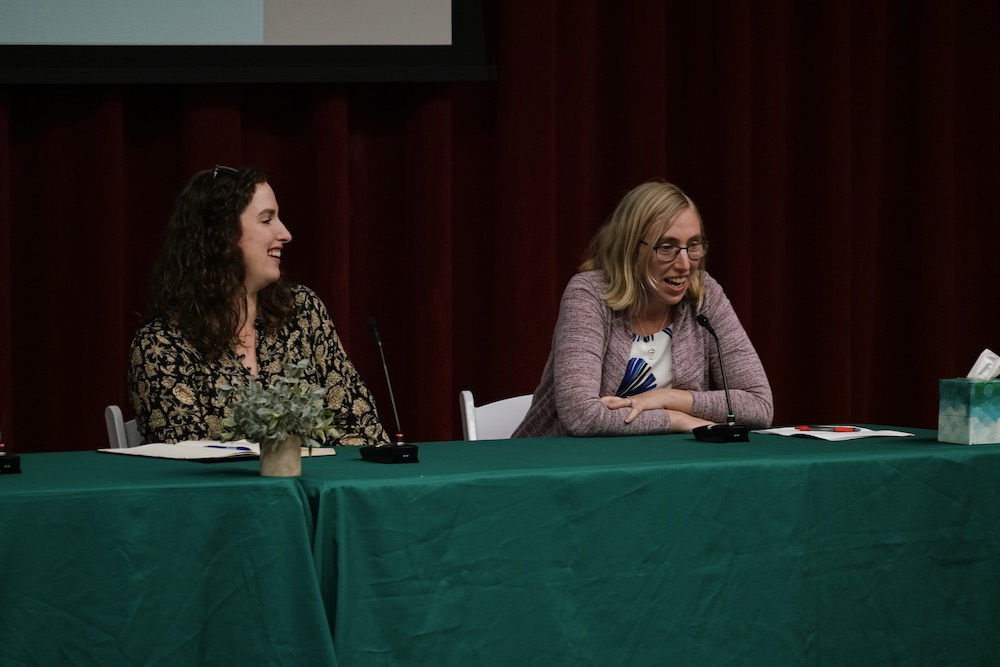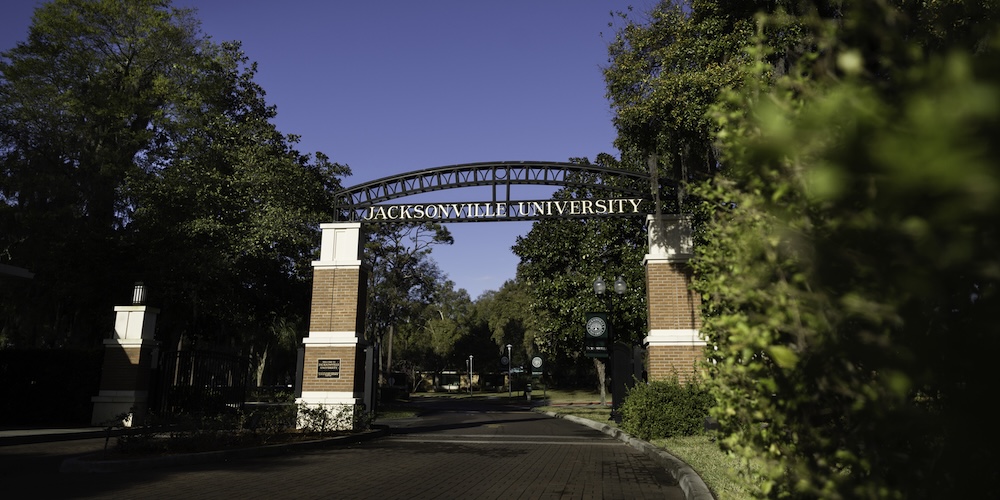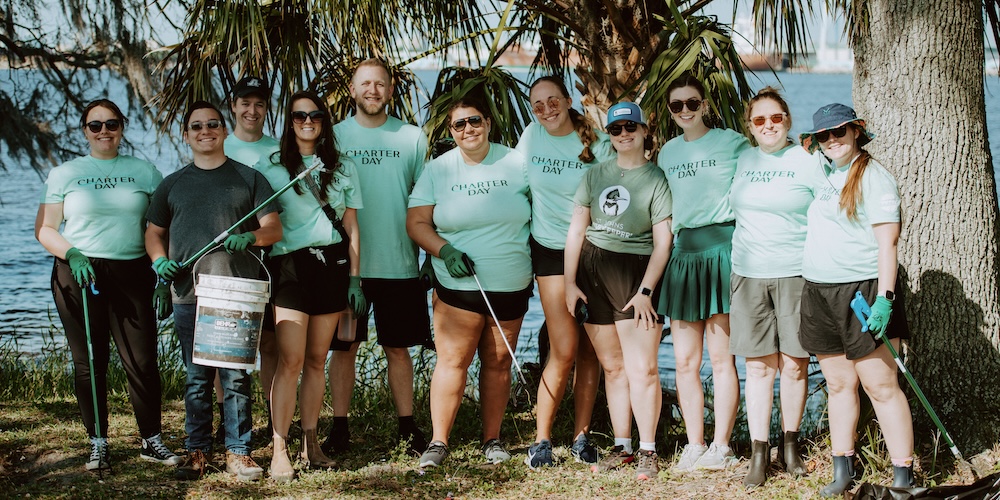Last week, Jacksonville University hosted a panel discussion about Florida's climate challenges and proposed actions to mitigate extreme effects. The event was open to the public.
Among the panelists were Anne Coglianese, the Chief Resiliency Officer for the City of Jacksonville, Esther Mullens, Assistant Professor of Geography at the University of Florida, Lisa Rinaman, an environmental advocate serving as the St. Johns Riverkeeper, and David Zierden, the State Climatologist at the Florida Climate Center.
Zierden began the panel by setting the context for the discussion on climate and weather threats that are broadly encountered in the State of Florida, including changes in average temperature, extreme rainfall and flooding, drought, sea level rise, hurricanes, tropical storms, and severe weather. As no surprise to Floridians, the state has the highest incidence of hurricanes in the country.
“Climate change is not bringing any new weather or climate threats, we have experienced and lived with these threats all along. Climate change, instead, is changing the nature of these threats in terms of severity and frequency, but they are not new threats,” Zierden said. “If we were properly prepared and resilient to the existing threats, we’d be 90% of the way there toward being resilient to climate change, but unfortunately, as we see disaster after disaster, we’re not even fully prepared for what we’ve historically experienced.”
Coglianese—who recently took on the role of Chief Resiliency Officer, translating climate science into pragmatic policy—followed with what resilience specifically looks like in the City of Jacksonville. According to her, resilience refers to the city's capacity to adjust and prosper despite unexpected shocks such as hurricanes, severe winter storms, or heat waves; she defined stresses as more gradual, such as summers becoming incrementally hotter, and new developments reducing the city’s tree canopy if the trees are not replanted.
Lisa Rinaman responded that the interests of the St. Johns River work in tandem with the interests of a more resilient Jacksonville. She shared that the vulnerability of the St. Johns River to sea level rise extends far beyond the immediate coastal areas. The river bottom lies below sea level for a distance of 150 miles inland, resulting in significant negative impacts and historic flooding that stretch all the way to Lake George.
“We need to protect the health of our river for today and future generations from sea level rise as well as the causes of climate change because as we are having more frequent storms, we are also seeing more damage done to our river, our businesses, and all the communities that depend on healthy water,” Rinaman said. “The consequences of flooding have undermined the progress we made because as you have historic flooding, there’s now more sewage washing into our river, and more pesticides…climate change gets really personal when raw sewage seeps into your home after a hurricane. Our River can be our greatest asset, but if we are not more resilient if we are not dealing with these issues it can be our greatest threat.”

To combat the environmental challenges facing Florida, the panelists shared how the Jacksonville community can take immediate action to reduce greenhouse gas emissions and protect the St. Johns River. One solution is to advocate for JEA to commit to 30% renewable energy by 2030 and 100% by 2050 while avoiding coal use, which is part of the conversations the St. Johns RiverKeeper is currently having with the utility company. Relatedly, they mentioned that rooftop solar is becoming more affordable and that JEA is looking to invest in 24% solar energy by 2030. Solar energy has numerous benefits for community resilience, including cost savings, reduced urban heat, and job creation. In fact, solar energy is one of the fastest-growing job markets.
Zierden added that recycling and reducing red meat consumption also has an incredible impact on mitigating greenhouse gas emissions. According to research, a significant reduction in heavy red meat consumption, especially beef and lamb, could result in a 15 to 35 percent decrease in per capita food and land use-related greenhouse gas emissions by 2050. Adopting a vegetarian diet could even halve these emissions. He mentioned that livestock production is a significant contributor to greenhouse gas emissions.
Together, these experts brought their knowledge and insights to bear on a wide range of pressing issues, including the impacts of climate change on water resources, the development of resilience initiatives to promote adaptation, and the need for solutions to address the numerous environmental challenges currently facing Florida and the globe. Throughout their discussion, the panelists grappled with the complex and often conflicting emotions surrounding the global climate crisis, exploring both the daunting challenges we face as a society and a reason for hope and optimism in the face of this existential threat. Ultimately, their insights and expertise offered a valuable glimpse into the complex and multifaceted nature of the global climate crisis and provided a roadmap for how we might begin to address these challenges in the years to come.
“The reality is that it is never too late. The question is how much do we want the climate to warm? It’s important for us to not give in to the idea that we are past any point. If we do that, we are telling ourselves that we are defeated, and I don’t think yet that we are,” added Mullens.
Understanding the need for climate action, Jacksonville University concluded the panel with the announcement of a climate action initiative, the JU Climate Innovation Challenge. This challenge will host a "Shark Tank" style grant competition where students, faculty and staff, and members of the Northeast Florida community are invited to present their climate problem-solving and/or awareness proposals for the opportunity to win funding. The grant competition is interdisciplinary and welcomes participants from various fields such as the arts, humanities, sciences, medical and health services, engineering, business, military offices, law, public policy, and government.
The grant competition is made possible through collaboration between Jacksonville University's College of Arts and Sciences, College of Law, Marine Science Research Institute, and Public Policy Institute.


